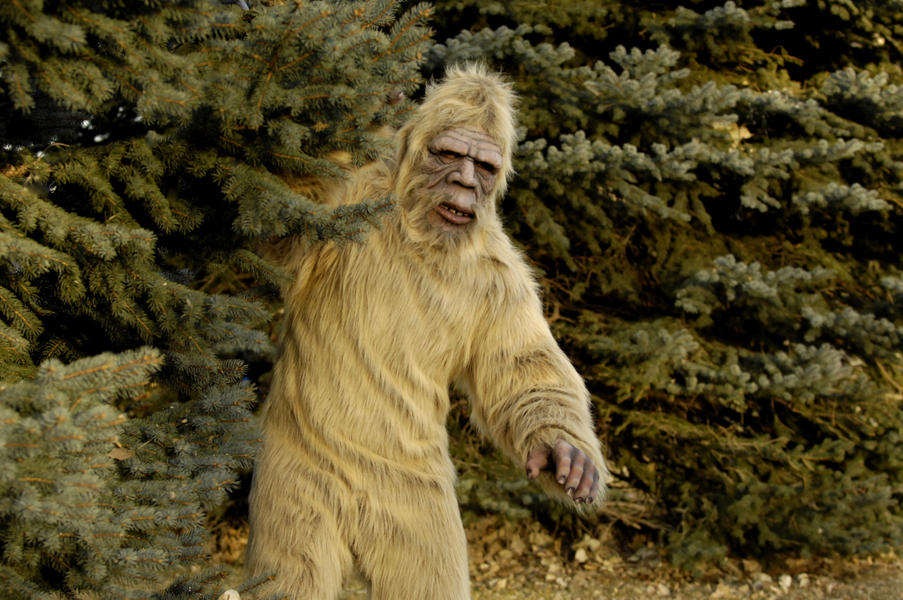DNA testing unable to prove existence of Bigfoot


A free daily email with the biggest news stories of the day – and the best features from TheWeek.com
You are now subscribed
Your newsletter sign-up was successful
Countless people from around the world swear they've had a run-in with the ape-like beast known as Bigfoot (or Sasquatch, or Yeti, depending on your region) but a fossil has never been discovered. Several private collections and museums do have strands of hair thought to have come from one of the creatures, and researchers have used those samples to see if science can prove once and for all that Bigfoot does exist.
A team at the University of Oxford led by Professor of Human Genetics Bryan Sykes collected 57 samples of hair and put them through macroscopic, microscopic, and infrared fluorescence tests. That helped eliminate 21 samples that weren't hair, but rather glass fibers, plant materials, and other substances. Of the remaining 36 samples, 30 had recoverable DNA, and all of those matched species that were already known.
The researchers did find that some of the hair didn't come from places where the mammal was known to dwell; two samples discovered in India and Bhutan that were believed to be from a yeti were actually from the extinct Pleistocene polar bear, which was thought to have only lived in the Tibetan Plateau.
The Week
Escape your echo chamber. Get the facts behind the news, plus analysis from multiple perspectives.

Sign up for The Week's Free Newsletters
From our morning news briefing to a weekly Good News Newsletter, get the best of The Week delivered directly to your inbox.
From our morning news briefing to a weekly Good News Newsletter, get the best of The Week delivered directly to your inbox.
Although scientific evidence proving Bigfoot is real wasn't found this time, researchers aren't ruling out that the creature exists.
"Does this evidence disprove the legends of the Yeti, Migyhur, Almasty, Sasquatch/Bigfoot?" Norman MacLeod of the London Natural History Museum wrote. "It does not. Scientific Q1 hypothesis testing of this sort is not designed to, and cannot, prove hypotheses alternative to the null hypothesis."
A free daily email with the biggest news stories of the day – and the best features from TheWeek.com
Catherine Garcia has worked as a senior writer at The Week since 2014. Her writing and reporting have appeared in Entertainment Weekly, The New York Times, Wirecutter, NBC News and "The Book of Jezebel," among others. She's a graduate of the University of Redlands and the Columbia University Graduate School of Journalism.
-
 The environmental cost of GLP-1s
The environmental cost of GLP-1sThe explainer Producing the drugs is a dirty process
-
 Greenland’s capital becomes ground zero for the country’s diplomatic straits
Greenland’s capital becomes ground zero for the country’s diplomatic straitsIN THE SPOTLIGHT A flurry of new consular activity in Nuuk shows how important Greenland has become to Europeans’ anxiety about American imperialism
-
 ‘This is something that happens all too often’
‘This is something that happens all too often’Instant Opinion Opinion, comment and editorials of the day
-
 Blue Origin launches Mars probes in NASA debut
Blue Origin launches Mars probes in NASA debutSpeed Read The New Glenn rocket is carrying small twin spacecraft toward Mars as part of NASA’s Escapade mission
-
 Dinosaurs were thriving before asteroid, study finds
Dinosaurs were thriving before asteroid, study findsSpeed Read The dinosaurs would not have gone extinct if not for the asteroid
-
 SpaceX breaks Starship losing streak in 10th test
SpaceX breaks Starship losing streak in 10th testspeed read The Starship rocket's test flight was largely successful, deploying eight dummy satellites during its hour in space
-
 Rabbits with 'horns' sighted across Colorado
Rabbits with 'horns' sighted across Coloradospeed read These creatures are infected with the 'mostly harmless' Shope papilloma virus
-
 Lithium shows promise in Alzheimer's study
Lithium shows promise in Alzheimer's studySpeed Read Potential new treatments could use small amounts of the common metal
-
 Scientists discover cause of massive sea star die-off
Scientists discover cause of massive sea star die-offSpeed Read A bacteria related to cholera has been found responsible for the deaths of more than 5 billion sea stars
-
 'Thriving' ecosystem found 30,000 feet undersea
'Thriving' ecosystem found 30,000 feet underseaSpeed Read Researchers discovered communities of creatures living in frigid, pitch-black waters under high pressure
-
 New York plans first nuclear plant in 36 years
New York plans first nuclear plant in 36 yearsSpeed Read The plant, to be constructed somewhere in upstate New York, will produce enough energy to power a million homes
